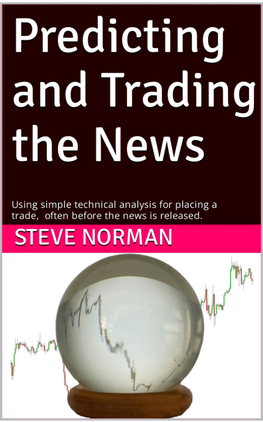|
Trading psychology is the study of how your emotions, thoughts, and beliefs affect your trading performance and decisions. It's a crucial aspect of trading that many traders overlook or neglect, but it can make or break your success in the markets.
In this post, we'll explore what trading psychology is, why it matters, what are some common psychological biases that traders face, and how to overcome them with practical tips and strategies. What is Trading Psychology? Trading psychology refers to the mental and emotional state of a trader and how it influences their trading behaviour. It involves understanding the impact of emotions, cognitive biases, self-control, discipline, and mental states on trading outcomes. Trading psychology recognises that traders are not purely rational beings but are influenced by a range of psychological factors that can lead to biased thinking, impulsive actions, and suboptimal decision making. Trading psychology emphasises the importance of self-awareness, emotional regulation, risk management, discipline, and resilience to make more objective, consistent, and successful trading decisions. By addressing psychological barriers and developing a balanced mindset, traders can improve their ability to navigate market volatility, manage risk, and achieve long-term profitability. Why Does Trading Psychology Matter? Trading psychology matters because it directly affects the quality of your trading decisions and performance. Here are some reasons why trading psychology is crucial: • Emotions Influence Decision-Making: Trading psychology recognises that emotional biases can influence a trader's judgment and actions. For example, fear can cause traders to close out positions prematurely or to refrain from taking on risk because of concern about large losses. Greed can cause traders to take on excessive risk, chase losing trades, or overstay in winning trades. Regret can cause traders to enter trades after missing out on them or to exit trades too early or too late. These emotions can interfere with a trader's ability to follow their trading plan and execute their trades effectively. • Discipline and Consistency: Successful trading requires discipline and consistency in following trading plans, risk management rules, and performance evaluation methods. Trading psychology helps traders to develop these habits and stick to them regardless of market conditions or outcomes. It also helps traders to avoid distractions, temptations, and impulses that can derail their trading process. • Managing Risk: Trading psychology helps traders to understand and manage the risks involved in trading. It helps traders to assess their risk tolerance, set realistic goals and expectations, and use appropriate risk-reward ratios and position sizing techniques. It also helps traders to cope with losses, drawdowns, and uncertainty without losing confidence or motivation. • Learning and Improving: Trading psychology helps traders to learn from their experiences and improve their skills and knowledge. It helps traders to adopt a growth mindset that embraces challenges, feedback, and mistakes as opportunities for learning. It also helps traders to avoid overconfidence, confirmation bias, hindsight bias, and other cognitive errors that can hinder their learning process. Psychological biases are systematic errors in thinking that affect how we perceive information, process information, and make decisions. They are often unconscious and automatic, but they can have significant impacts on our trading performance. Some common psychological biases that traders face: - • Confirmation Bias: This is the tendency to seek out or interpret information that confirms our existing beliefs or hypotheses while ignoring or discounting information that contradicts them. For example, a trader who is bullish on a stock may only pay attention to positive news or indicators while ignoring negative ones. This can lead to overconfidence, missed signals, or false assumptions. • Illusion of Control Bias: This is the tendency to overestimate our ability to influence or control events or outcomes. For example, a trader who believes that they have a special skill or system that gives them an edge over the market may ignore the role of luck or randomness in trading. This can lead to excessive risk-taking, overtrading, or failure to adapt to changing market conditions. • Loss Aversion Bias: This is the tendency to prefer avoiding losses over acquiring equivalent gains. For example, a trader who is reluctant to close a losing trade because they hope it will turn around may end up losing more than they initially risked. This can lead to poor risk management. Emotional intelligence is the ability to identify and manage your own emotions and the emotions of others. It is generally considered to include three elements: self-awareness, motivation, and self-control. Emotional intelligence can help you improve your trading performance by enabling you to: • Recognise and regulate your emotions: Trading can trigger a range of emotions, such as fear, greed, euphoria, panic, and despondency. These emotions can cloud your judgment and lead to impulsive or irrational decisions. By being aware of your emotional state and how it affects your trading behaviour, you can learn to regulate your emotions and avoid emotional trading. You can also use positive emotions, such as confidence, optimism, and curiosity, to enhance your trading performance. • Understand and empathise with others: Trading involves interacting with other market participants, such as brokers, analysts, mentors, peers, and competitors. By being able to understand their emotions and perspectives, you can improve your communication, collaboration, and negotiation skills. You can also gain insights into the market sentiment and psychology, which can help you anticipate market movements and trends. • Solve problems and make decisions: Trading requires constant problem-solving and decision-making under uncertainty and pressure. By applying emotional intelligence, you can improve your cognitive abilities and analytical skills. You can also avoid cognitive biases, such as confirmation bias, illusion of control bias, loss aversion bias, and overconfidence bias. How to Improve Your Emotional Intelligence for Trading There are many ways to improve your emotional intelligence for trading. Here are some practical tips and strategies: • Practice mindfulness and meditation: Mindfulness is the practice of paying attention to the present moment with openness and curiosity. Meditation is a technique of focusing your attention on a single object, such as your breath, a word, or a sound. Both practices can help you cultivate self-awareness, emotional regulation, and mental clarity. They can also reduce stress, anxiety, and negative emotions that can interfere with your trading performance. • Keep a trading journal: A trading journal is a record of your trading activities, including your entries, exits, profits, losses, strategies, goals, and emotions. By keeping a trading journal, you can track your progress, evaluate your performance, identify your strengths and weaknesses, and learn from your mistakes. You can also use your trading journal to reflect on your emotions and how they affect your trading decisions. • Use positive self-talk: Positive self-talk is the practice of using affirming and encouraging words to yourself. It can help you boost your confidence, motivation, and resilience in trading. For example, instead of saying "I'm a bad trader", you can say "I'm learning from my experience". Instead of saying "I'm afraid of losing money", you can say "I'm prepared to take calculated risks". Positive self-talk can also help you cope with negative emotions and overcome challenges in trading. • Take breaks and relax: Trading can be mentally and emotionally exhausting. Therefore, it's important to take breaks and relax regularly. This can help you recharge your energy, refresh your mind, and restore your emotional balance. You can also use relaxation techniques, such as deep breathing, PS. I used AI to help me write this post - I hope you got something from it.
0 Comments
Your comment will be posted after it is approved.
Leave a Reply. |
Archives
May 2024
|
|
Website design by Snorm
|



 RSS Feed
RSS Feed